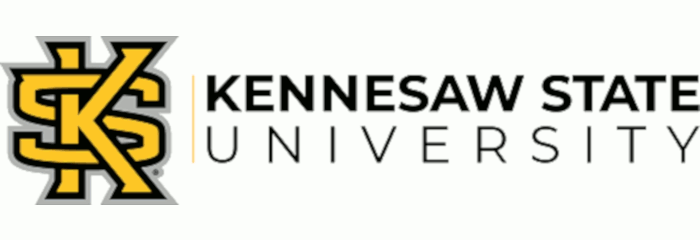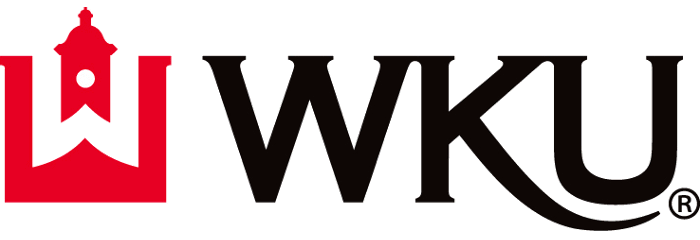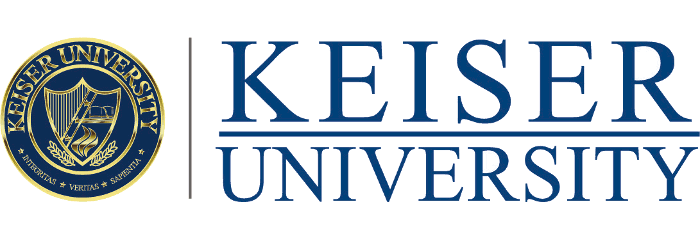2025 Best Online Engineering Degrees
An online engineering degree provides flexible, accessible education, combining core engineering principles with specialized tracks and practical applications. Accredited curricula with virtual labs and industry alignment prepare students for careers in fields like civil, mechanical, electrical, and computer engineering.
Key Takeaways:
- Arizona State University, which offers an engineering degree online, holds the top spot with 50,637 online students studying at the undergraduate level, demonstrating a strong infrastructure for distance learning.
- Mississippi State University offers substantial financial support, with an average financial aid package of $14,252.
- Murray State University hosts an engineering bachelor's online and stands out with a student review rating of 4.41 out of 5.
Our ranking methodology shows the best engineering degrees online by providing a list of accredited schools, emphasizing the most popular online schools at the bachelor's level. We utilize data from IPEDS, supplemented by manual audits to ensure accuracy.
List Of Accredited Online Engineering Schools
| School | Online Enrollment | Annual Tuition |
|---|---|---|
| Arizona State University, Online | ||
| Excelsior University | 13,983 | NA |
| Florida International University | 11,900 | $18,963 |
| Kennesaw State University | 6,307 | $12,218 |
| ECPI University Online | 6,006 | $18,484 |
| Old Dominion University | 5,998 | $31,170 |
| National University | 4,964 | $13,320 |
| University of Arkansas Grantham | 4,598 | $8,280 |
| University of North Dakota | 2,524 | $15,570 |
| University of Southern Mississippi | 2,222 | $11,450 |
| Eastern New Mexico University - Main Campus | 2,022 | $8,843 |
| Western Kentucky University | 1,939 | $27,000 |
| Mississippi State University | 1,826 | $25,444 |
| Indiana State University | 1,712 | $21,160 |
| Southern Illinois University - Carbondale | 1,262 | $15,416 |
| University of West Alabama | 1,172 | $20,090 |
| Bemidji State University | 1,151 | $10,130 |
| Murray State University | 1,048 | $18,888 |
| University of Central Missouri | 600 | $17,453 |
| Keiser University | NA | NA |
2025 Best Online Engineering Degrees
- Online Enrollment: 50,637 enrolled
- Annual Tuition: $30,592
- Locations: Tempe (AZ) (and 4 others)
Online degree: Bachelor of Science in Exploratory Math, Physical Sciences, Engineering and Technology
Why we like them: First and foremost, ASU's online enrollment is exceptional, with 50,637 students engaged in online studies, positioning it as a leader in the top 1% of universities with substantial online student populations. Within the Exploratory Math, Physical Sciences, Engineering and Technology track, you will complete general education credits while exploring diverse STEM fields, making it an ideal choice if you're undecided but passionate about STEM. Additionally, you'll engage with award-winning faculty and have access to research opportunities and virtual office hours.
Key Metrics:
- Acceptance Rate: 76%
- Avg. Graduation Rate: 66%
- Retention Rate: 85%
- Recommend Rate: 90%
- Financial Aid Recipients: 93%
- Avg. Aid Package: $12,381
- Repayment Rate: 92%
- School Type: Nonprofit (Public)
- Online Enrollment: 13,983 enrolled
- Annual Tuition: NA
- Location: Albany (NY)
Online degree: Bachelor of Science in Electrical Engineering Technology
Why we like them: Excelsior achieves second place in our ranking, driven by its substantial online enrollment of 13,983 students. If we were to compare Excelsior's online enrollment with those of other universities, it places the school in the top 2% for the highest number of online students. Excelsior’s fully online electrical engineering bachelor's prepares students for careers in industries such as electronics, electrical power, and semiconductors. Accredited by ABET, graduates are prepared to take the Fundamentals of Engineering (FE) exam.
Key Metrics:
- Acceptance Rate: N/A
- Avg. Graduation Rate: N/A
- Retention Rate: N/A
- Recommend Rate: 63%
- Financial Aid Recipients: N/A
- Avg. Aid Package: N/A
- Repayment Rate: 96%
- School Type: Nonprofit (Private)
- Online Enrollment: 11,900 enrolled
- Annual Tuition: $18,963
- Location: Miami (FL)
Online degree: Bachelor of Science in Electrical Engineering
Why we like them: Ranked 3rd, FIU stands out with its significant online enrollment of 11,900 students, placing it among the top 2% of institutions in this regard. This indicates not only ample opportunities for peer interaction but also FIU's robust digital infrastructure capable of supporting such a large community. FIU's program is accredited by ABET, ensuring the highest quality education. This online bachelor's degree is designed to open doors to diverse careers in fields like transportation, government agencies, and consumer electronics, backed by FIU's strong placement record and industry connections.
Key Metrics:
- Acceptance Rate: 54%
- Avg. Graduation Rate: 69%
- Retention Rate: 91%
- Recommend Rate: 91%
- Financial Aid Recipients: 91%
- Avg. Aid Package: $11,087
- Repayment Rate: 91%
- School Type: Nonprofit (Public)
- Online Enrollment: 6,307 enrolled
- Annual Tuition: $12,218
- Location: Kennesaw (GA)
Online degree: Bachelor of Science in Industrial Engineering Technology
Why we like them: Ranked 4th for online enrollment, Kennesaw also boasts a recommendation rate of 85%/ This means the school is positively reviewed by the majority of its students. The industrial engineering technology program is designed to equip you with a set of skills in areas like work measurement, data analytics, process design, quality, and logistics. The curriculum requires 120 credit hours and includes specialized courses in areas such as logistics and supply chain management, statistical quality control, and Six Sigma and lean manufacturing, among others.
Key Metrics:
- Acceptance Rate: 61%
- Avg. Graduation Rate: 46%
- Retention Rate: 75%
- Recommend Rate: 85%
- Financial Aid Recipients: 94%
- Avg. Aid Package: $7,854
- Repayment Rate: 91%
- School Type: Nonprofit (Private)
- Online Enrollment: 6,006 enrolled
- Annual Tuition: $18,484
- Locations: Multiple Locations
Online degree: Bachelor of Science in Mechanical Engineering Technology
Why we like them: The online mechanical engineering technology degree at ECPI is accredited by the Engineering Technology Accreditation Commission (ETAC) of ABET, ensuring the highest educational standards. You can earn a bachelor's in as little as 2.5 years, which is exceptionally fast-tracked. The curriculum is tailored for careers in key areas such as mechanical product design & fabrication, automation & manufacturing, and climate control, among others. The hands-on approach and industry-relevant course offerings, including Applied Thermodynamics and Robotics, prepare you for the challenges of modern engineering environments.
Key Metrics:
- Acceptance Rate: 71%
- Avg. Graduation Rate: 49%
- Retention Rate: 51%
- Recommend Rate: 46%
- Financial Aid Recipients: 88%
- Avg. Aid Package: $6,001
- Repayment Rate: 88%
- School Type: For Profit
- Online Enrollment: 5,998 enrolled
- Annual Tuition: $31,170
- Location: Norfolk (VA)
Online degree: Bachelor of Science in Computer Engineering
Why we like them: The computer engineering bachelor's degree at ODU is accredited by the Engineering Accreditation Commission of ABET, underscoring its quality. The program comprises 128 total credit hours and includes a built-in minor in computer science, in addition to offering tailored elective courses such as data analytics engineering, computer hardware systems, computer networks, and cybersecurity. This broad curriculum encourages practical application of skills through team-based projects during the final two semesters, often leading to participation in regional and national competitions.
Key Metrics:
- Acceptance Rate: 86%
- Avg. Graduation Rate: 47%
- Retention Rate: 74%
- Recommend Rate: 87%
- Financial Aid Recipients: 92%
- Avg. Aid Package: $9,058
- Repayment Rate: 93%
- School Type: Nonprofit (Public)
- Online Enrollment: 4,964 enrolled
- Annual Tuition: $13,320
- Location: La Jolla (CA)
Online degree: Bachelor of Science in Manufacturing Design Engineering Technology
Why we like them: NU holds a notable ranking primarily due to its strong online enrollment of 4,964 students, placing it in the top 7% among U.S. institutions. NU’s online engineering program is innovative with courses featuring four-week classes that enable you to start sooner and finish faster, along with year-round enrollment for a flexible start date. The curriculum includes the use of state-of-the-art computer-aided tools and simulation modeling techniques essential for modern engineering practices. The program also prepares you for leadership roles by emphasizing global team collaboration, ethics, and effective communication.
Key Metrics:
- Acceptance Rate: N/A
- Avg. Graduation Rate: 29%
- Retention Rate: 64%
- Recommend Rate: 47%
- Financial Aid Recipients: 91%
- Avg. Aid Package: $5,932
- Repayment Rate: 93%
- School Type: Nonprofit (Private)
- Online Enrollment: 4,598 enrolled
- Annual Tuition: $8,280
- Location: Kansas City (KS)
Online degree: Bachelor of Science in Engineering Management Technology
Why we like them: The online bachelor's in engineering management technology at UA Grantham emphasizes both technical and managerial skills, preparing you for leadership roles in various technology-driven industries. The curriculum integrates essential courses like mathematics, physics, engineering design, computer-aided design, and project management. Elective courses offer additional depth in business, computer science, or engineering technology, catering to diverse career aspirations.
Key Metrics:
- Acceptance Rate: N/A
- Avg. Graduation Rate: 21%
- Retention Rate: 36%
- Recommend Rate: 56%
- Financial Aid Recipients: 99%
- Avg. Aid Package: $5,765
- Repayment Rate: 100%
- School Type: Nonprofit (Public)
- Online Enrollment: 2,524 enrolled
- Annual Tuition: $15,570
- Location: Grand Forks (ND)
Online degree: Bachelor of Science in Biomedical Engineering
Why we like them: UND hosts 2,524 distance learners, placing it in the top 19% of universities with the highest online student populations. The university also boasts a notable recommendation rate of 91%, underscoring the satisfaction of its alumni. UND's engineering program requires 128 credit hours and emphasizes practical experience through internships and design competitions. Particularly for those interested in biomedical engineering, UND offers unique coursework in areas such as the Medical Internet of Things (MedIoT), bio-instrumentation, and neuroengineering.
Key Metrics:
- Acceptance Rate: 83%
- Avg. Graduation Rate: 63%
- Retention Rate: 79%
- Recommend Rate: 91%
- Financial Aid Recipients: 92%
- Avg. Aid Package: $6,387
- Repayment Rate: 96%
- School Type: Nonprofit (Public)
- Online Enrollment: 2,222 enrolled
- Annual Tuition: $11,450
- Location: Hattiesburg (MS)
Online degree: Bachelor of Science in Industrial Engineering Technology
Why we like them: If we were to compare USM's online enrollment with that of other universities, USM stands out in the top 21% for online student engagement, which speaks to the online school's popularity and accessibility. In addition to its strong online presence, the school's student review rating of 3.81 out of 5 and a recommendation rate of 84% highlight positive student experiences. The program requires 120 credit hours, including 39 hours within the major. Notably, it is accredited by the Engineering Technology Accreditation Commission of ABET, ensuring its industry-recognized.
Key Metrics:
- Acceptance Rate: 98%
- Avg. Graduation Rate: 52%
- Retention Rate: 70%
- Recommend Rate: 84%
- Financial Aid Recipients: 92%
- Avg. Aid Package: $9,296
- Repayment Rate: 88%
- School Type: Nonprofit (Public)
- Online Enrollment: 2,022 enrolled
- Annual Tuition: $8,843
- Location: Portales (NM)
Online degree: Bachelor of Applied Arts and Science in Electronics Engineering Technology
Why we like them: With 2,022 online learners, ENMU stands among the top 23% of institutions with well-established online education platforms. The engineering degree online equips students with knowledge in electronics, communications, renewable energy, and control systems. It's ideal for those with prior academic or technical experience, allowing students to transfer credits and complete their degree while gaining skills in circuit analysis, semiconductor devices, and renewable energy technologies. Graduates enter industries such as electronics development, renewable energy, and equipment maintenance.
Key Metrics:
- Acceptance Rate: 60%
- Avg. Graduation Rate: 41%
- Retention Rate: 62%
- Recommend Rate: 92%
- Financial Aid Recipients: 98%
- Avg. Aid Package: $8,719
- Repayment Rate: N/A
- School Type: Nonprofit (Public)
- Online Enrollment: 1,939 enrolled
- Annual Tuition: $27,000
- Location: Bowling Green (KY)
Online degree: Bachelor of Science in Engineering Technology Management
Why we like them: WKU’s bachelor's in engineering technology management is a 2+2 program designed for students with a certificate or associate degree from a technical school or college. This capstone program focuses on management skills for those aiming for supervisory roles in business or industry. Graduates are equipped to lead in technology-driven environments, enhancing efficiency, quality, and global competitiveness. Overall, WKU is ranked 12th for its online enrollment which sees 1,939 students engaged in remote learning, placing WKU among the top 24% of institutions for this metric.
Key Metrics:
- Acceptance Rate: 95%
- Avg. Graduation Rate: 50%
- Retention Rate: 77%
- Recommend Rate: 95%
- Financial Aid Recipients: 99%
- Avg. Aid Package: $10,260
- Repayment Rate: 86%
- School Type: Nonprofit (Public)
- Online Enrollment: 1,826 enrolled
- Annual Tuition: $25,444
- Location: Mississippi State (MS)
Online degree: Bachelor of Science in Electrical Engineering
Why we like them: MSU's online student population of 1,826 places it among the top 24% of universities with the highest online enrollments, reflecting its strong virtual presence. Another highlight is the impressive retention rate of 81%, situating MSU within the top 19% of institutions for student continuity. Graduates from the engineering bachelor's program also benefit from a high median earning potential of $80,437, further strengthening the program's appeal and positioning MSU within the top 39% for graduate salaries across the U.S.
Key Metrics:
- Acceptance Rate: 62%
- Avg. Graduation Rate: 63%
- Retention Rate: 81%
- Recommend Rate: 89%
- Financial Aid Recipients: 98%
- Avg. Aid Package: $14,252
- Repayment Rate: 92%
- School Type: Nonprofit (Public)
- Online Enrollment: 1,712 enrolled
- Annual Tuition: $21,160
- Location: Terre Haute (IN)
Online degree: Bachelor of Science in Electronics Engineering Technology
Why we like them: Indiana State is highly ranked for its online Bachelor of Science in Electronics Engineering Technology due to its impressive online enrollment, placing it among the top 25% of institutions for this metric. The program's solid recommendation rate of 91% further demonstrates the satisfaction of its graduates. Indiana State's online electronics engineering degree is accredited by ABET, ensuring adherence to rigorous educational standards. It's designed to prepare you for advanced technical and professional roles in various fields, including instrumentation, control, and electronics manufacturing.
Key Metrics:
- Acceptance Rate: 85%
- Avg. Graduation Rate: 44%
- Retention Rate: 64%
- Recommend Rate: 91%
- Financial Aid Recipients: 97%
- Avg. Aid Package: $10,802
- Repayment Rate: 89%
- School Type: Nonprofit (Public)
- Online Enrollment: 1,262 enrolled
- Annual Tuition: $15,416
- Location: Carbondale (IL)
Online degree: Bachelor of Science in Industrial Management and Applied Engineering
Why we like them: SIU is ranked highly due to its substantial online enrollment, with 1,262 distance learners. Additionally, SIU impresses with a favorable student-to-faculty ratio of 11:1, ensuring you receive personal attention and support throughout your academic journey. The school's recommendation rate is also noteworthy at 87%, underscoring the satisfaction of its graduates. The engineering curriculum covers technical areas like lean manufacturing, Six Sigma, and robotics, providing you with the skills needed for diverse career options, like roles as engineers, managers, and supervisors.
Key Metrics:
- Acceptance Rate: 76%
- Avg. Graduation Rate: 50%
- Retention Rate: 70%
- Recommend Rate: 87%
- Financial Aid Recipients: 99%
- Avg. Aid Package: $11,269
- Repayment Rate: 91%
- School Type: Nonprofit (Public)
- Online Enrollment: 1,172 enrolled
- Annual Tuition: $20,090
- Location: Livingston (AL)
Online degree: Bachelor of Science in Computer Engineering Technology
Why we like them: UWA’s online Bachelor of Science in Computer Engineering Technology prepares students for careers in cybersecurity, network administration, and systems management. We appreciate that it offers hands-on training, industry certification preparation, and instruction from PhD faculty and industry leaders. Graduates gain expertise in areas such as risk management, hacking prevention, and programmable control systems, ready to pursue roles like cybersecurity analyst and network security engineer.
Key Metrics:
- Acceptance Rate: 28%
- Avg. Graduation Rate: 37%
- Retention Rate: 69%
- Recommend Rate: 71%
- Financial Aid Recipients: 99%
- Avg. Aid Package: $9,291
- Repayment Rate: 90%
- School Type: Nonprofit (Public)
- Online Enrollment: 1,151 enrolled
- Annual Tuition: $10,130
- Location: Bemidji (MN)
Online degree: Bachelor of Applied Science in Applied Engineering
Why we like them: BSU's applied engineering program online promotes interactive and hands-on learning, with access to state-of-the-art labs for on-campus students. The school's Extended Learning Center further enhances the online learning experience, providing additional support and resources to online learners. If you hold a two-year technical degree, you can complete this program in as little as two years, making it an efficient path to elevating your credentials and career prospects.
Key Metrics:
- Acceptance Rate: 66%
- Avg. Graduation Rate: 50%
- Retention Rate: 71%
- Recommend Rate: 75%
- Financial Aid Recipients: 92%
- Avg. Aid Package: $7,381
- Repayment Rate: 92%
- School Type: Nonprofit (Public)
- Online Enrollment: 1,048 enrolled
- Annual Tuition: $18,888
- Location: Murray (KY)
Online degree: Bachelor of Science in Manufacturing Engineering Technology
Why we like them: Murray State is ranked highly due to its notable online enrollment figures, with 1,048 students engaged in online programs, indicating a large virtual campus. Another aspect we highly value is the 100% recommendation rate, reflecting exceptional student satisfaction. The manufacturing engineering program equips students with the skills needed for careers in industries like automotive, metalworking, and plastics. The curriculum covers metal machining, CNC, CAD/CAM, fluid power, and quality control, preparing graduates for roles like manufacturing engineer, industrial supervisor, and project manager.
Key Metrics:
- Acceptance Rate: 87%
- Avg. Graduation Rate: 62%
- Retention Rate: 77%
- Recommend Rate: 100%
- Financial Aid Recipients: 100%
- Avg. Aid Package: $11,560
- Repayment Rate: 90%
- School Type: Nonprofit (Public)
- Online Enrollment: 600 enrolled
- Annual Tuition: $17,453
- Location: Warrensburg (MO)
Online degree: Bachelor of Science in Engineering Technology - Management
Why we like them: UCM boasts a commendable student review rating of 4.15 out of 5 and a 100% recommendation rate, indicating very high levels of satisfaction among its students. The engineering degree prepares students for hands-on roles in industries like sustainable power, medical technology, and nanotechnology. This ABET-accredited program blends technical skills with management training, focusing on optimizing productivity and creative problem-solving. Graduates often enter leadership positions in engineering, with opportunities at top companies such as Boeing, Ford Motors, and General Electric.
Key Metrics:
- Acceptance Rate: 84%
- Avg. Graduation Rate: 53%
- Retention Rate: 72%
- Recommend Rate: 100%
- Financial Aid Recipients: 100%
- Avg. Aid Package: $6,517
- Repayment Rate: N/A
- School Type: Nonprofit (Public)
- Online Enrollment: enrolled
- Annual Tuition: NA
- Locations: Daytona Beach (FL) (and 15 others)
Online degree: Bachelor of Science in Applied Engineering
Why we like them: Keiser's online bachelor's in applied engineering requries 123 credit hours and approximately 35 months to complete. The curriculum equips students with advanced engineering principles and technical skills relevant to various industries. Specifically, it focuses on areas such as Field Programmable Gate Arrays (FPGA), robotics, and process control, ensuring you acquire both theoretical and practical expertise. This emphasis on hands-on learning and industry-level tools prepares you to excel in roles related to developing, installing, and maintaining complex systems.
Key Metrics:
- Acceptance Rate: N/A
- Avg. Graduation Rate: 67%
- Retention Rate: N/A
- Recommend Rate: 41%
- Financial Aid Recipients: 81%
- Avg. Aid Package: $8,044
- Repayment Rate: N/A
- School Type: N/A
Overview of Online Engineering Degrees
Keeping the world's water supply safe, improving the country's transportation system, and inventing prosthetic devices all have something in common: They require the work of an engineer. There are many types of online engineering programs available for students who want to do everything from constructing buildings and creating computer systems to protecting the public.
Most online schools for bachelor's degrees in engineering require undergraduates to complete 120-126 credit hours, which might take as little as four years of full-time attendance. Online engineering courses often require students to complete projects to gain hands-on experience in their chosen specialty. Many programs lead to a Bachelor of Applied Science, but there are also Bachelor of Science or Bachelor of Arts in Engineering degrees.
What Is an Engineering Degree?
An engineering degree is a STEM major that integrates math, science, and business courses into its curriculum. You may begin by learning general engineering concepts and fundamentals before choosing from several specialties in your second year of study. Coursework includes general core classes, major core classes, and electives. Lessons are delivered via in-person or virtual class instruction, lab work, and hands-on learning opportunities such as internships.
Engineering student outcomes generally include the following:
-
Identifying and solving complex engineering problems by applying science, math, and engineering skills
-
Creating safe and sound solutions that benefit humankind and the environment
-
Communicating effectively and demonstrating leadership skills
-
Conducting work in an ethical and professionally responsible manner
-
Working as a contributing and collaborative member of a team
Engineering Majors
Engineering is a broad term for methods of analyzing and solving problems and designing products and processes. Engineering techniques can apply to a variety of fields, giving prospective students a wide range of engineering majors to choose from. It's not unusual for a college of engineering to offer eight or more types of online engineering degrees across many areas of specialization, such as petroleum engineering, environmental engineering, nuclear engineering, and agricultural engineering.
The most popular engineering specialties include those listed below:
Aerospace Engineering
Aerospace engineers use their knowledge of physics and mechanical and electrical engineering to design and build planes, satellites, space shuttles, and other airframes. Students can first earn an aerospace engineering bachelor's degree, then they can pursue an online engineering school that offers master's degrees in aerospace engineering for a more advanced education.
Chemical Engineering
Chemistry helps create many of the industrial and consumer products available today, from food to electronics and clothing. Chemical engineers often develop new products or processes in the manufacturing industry and oversee production in large facilities. Before entering the workforce, students can explore a bachelor's in chemical engineering or a master's degree in chemical engineering.
Civil Engineering
Both a bachelor's in civil engineering and a master's in civil engineering teach students to design and supervise the construction of large-scale infrastructure projects. These from roads and sewer systems to bridges and airports. Professional civil engineers are trained in the technical aspects of the industry so they can calculate the cost and structural stability of their designs.
Computer Engineering
Computer engineering combines hardware, software, manufacturing, and design practices into one comprehensive field. Computer engineering curricula seek to develop students' critical-thinking skills while teaching advanced math, electronic circuitry, instrumentation, and signals. You can specialize in computer engineering at the bachelor's level, while master's programs in computer engineering allow students to focus on a concentration to advance their learning in a specialty.
Electrical Engineering
Electrical engineers design and build electrical devices in a range of industries. Subfields of electrical engineering include microelectronics, telecommunications, and signal processing. Bachelor's degrees in electrical engineering are available online. Master's programs in electrical engineering include concentrations in telecommunications, microelectronic devices, and embedded systems.
Engineering Management
Engineering management degrees blend technical skills with business practices and leadership. A bachelor's or master's degree in this field might set students up to oversee large engineering projects featuring budget oversight, staff onboarding, and completion timelines. Classes often cover finance, law, economics, systems engineering, and supply chain management.
Industrial Engineering
Industrial engineers find the most effective ways to use the major facets of production, such as machinery, materials, personnel, and energy. Industrial engineers research product specifications and industrial methods to figure out how to increase productivity, decrease waste, and use time, energy, and money effectively. Industrial engineering degrees are available online for undergraduates. Master's degrees in industrial engineering are also available for those who want to move into management positions.
Mechanical Engineering
Mechanical engineers design, build, and repair machines. Bachelor's degrees in mechanical engineering teach students to construct and test systems as diverse as heaters, refrigerators, air conditioners, internal combustion engines, generators, and turbines. Master's degrees in mechanical engineering explore more advanced topics in thermodynamics, aerospace mechanics, or robotics.
Software Engineering
Software engineers develop and test computer software and applications to meet user needs. Graduates with software engineering degrees may explore careers in governmental agencies, businesses, or nonprofit organizations. A master's program in software engineering may allow students to deepen their knowledge of agile methods, application programming, and interface design.
Systems Engineering
Professionals use the knowledge gained in their systems engineering degree to develop and oversee complex procedures to organize projects for maximum efficiency. Their work relates to other engineering disciplines because parts of these systems may include hardware, software, electrical components, and structures. A professional with a master's degree in systems engineering may go on to advanced roles in engineering or management.
Engineering Degree Levels
You can earn an associate, bachelor's, master's, or doctoral degree in engineering. There are also certificates and diplomas available at the undergraduate level, often through trade schools and community colleges, and graduate-level certificates that help degree-holding engineers develop specialized skills. However, most jobs require a bachelor's degree to become an entry-level engineer.
Engineering Courses
All engineering programs require a healthy sense of curiosity alongside analytical skills in mathematics and science. With so many types of engineering, there's no single curriculum that applies for each kind of bachelor's degree. But most engineering programs will include the following courses:
Applied Mechanics and Dynamics
Students learn to analyze how objects move and interact with one another. They might study the physics of particle systems and rigid bodies or fluid mechanics (the movement of liquids and gasses).
Calculus
Most engineers need to learn how to solve both single-variable and multivariable equations to do their work well. This course might introduce differential equations, or the mathematics of change.
Operations Research
This class covers how to analyze the efficiency of a project or ongoing operation. Students can then apply lessons from this discipline to their particular branch of engineering.
Principles of Programming
This course's faculty explore problem-solving through computer programming languages and algorithms. Faculty teach how to design, code, and implement programs to help engineering projects.
Careers in Engineering
You can find engineers in various industries, from healthcare to construction to information technology. Many lucrative engineering careers require only an undergraduate degree, although some graduates must also obtain professional licenses to practice.
The Bureau of Labor Statistics (BLS) expects promising salary and job outlook projections for various engineering fields, including those below:
Aerospace Engineers
Aerospace engineers design and build airplanes, satellites, spacecraft, and missiles. They also develop new technologies for use in aircraft and spacecraft. Their work incorporates knowledge of physics, materials, computer science, and IT.
Chemical Engineers
Chemical engineers use chemistry and other sciences to develop manufacturing processes for natural and synthetic products. They troubleshoot performance issues, tackle safety concerns, and ensure the efficiency of equipment.
Civil Engineers
Civil engineers design and oversee construction of roads, railroads, bridges, pipelines, dams, and power plants. Their job is crucial to ensuring compliance with safety and environmental regulations.
Computer Hardware Engineers
Computer hardware engineers to set up the physical equipment needed to operate complex computer systems. They often work in research facilities developing and testing new computer technology.
Electrical Engineers
An electrical engineer's role is to supervise electrical systems in manufacturing, commercial, military, or telecommunications. They install, construct, and even maintain these systems to meet compliance requirements while documenting their processes.
Engineering Managers
Engineering managers oversee teams of engineers and engineering projects. They prepare bids, calculate budgets, coordinate activities, and negotiate with clients to create project expectations. They might work for research facilities, architectural firms, or industrial plants.
Industrial Engineers
Large-scale industrial equipment requires the design skills and implementation knowledge of industrial engineers. They create the systems that operate production facilities while minding the safety and efficiency of all workers, processes, and equipment.
Mechanical Engineers
Mechanical engineers design and oversee mechanical equipment for industries such as energy and manufacturing. They may develop operating procedures, interpret blueprints, or monitor manufacturing systems.
Software Engineers
Software engineers work alongside developers and analysts to create software and apps. By designing and implementing the processes for software systems, they ensure that all software tasks and functions work together.
Our list of the most affordable online bachelor's in engineering degrees has many options with relatively low tuition rates.
Is an Online Engineering Degree Worth It?
A bachelor's degree in engineering is probably worth the cost and effort if you're passionate about becoming an engineer. This is because you'll nearly always need this credential to land your first entry-level job in the field. But you may want to weigh some of the additional pros and cons before committing to an online program:
Potential Benefits
-
Engineers usually earn impressive salaries. Many engineering jobs require only a bachelor's degree to enter the field, and professionals typically work their way up to salaries in the high $90,000s and above.
-
Advanced engineering degrees often lead to even higher salaries. You may qualify for even more advanced, higher-paying positions if you later earn an online master's degree.
-
You can build strong leadership skills. You can even earn an engineering management master's degree to help build the skills you'll need to motivate and advise others when working on large projects.
-
You'll be learning work that may benefit society. Completing an engineering degree program can help you gain the skills and confidence necessary to eventually work on projects that positively impact the environment, energy consumption, medicine, or transportation.
Potential Drawbacks
-
The engineering curriculum can be intense and demanding. STEM degrees can be intellectually challenging, and while this can be motivating for some, it may prove too difficult for others. It can also be difficult if you're trying to balance school with work and family, especially if you find it challenging to carve out time to study.
-
Engineering is a highly competitive field of study to get into. Read our guide on applying to college for tips about how to apply and make your application stand out.
-
You'll have to commit to lifelong learning. Technology changes at an alarming pace, and you'll have to keep up to remain competitive in the job market. You may have to earn an additional degree and certification to keep pace with industry demands. Going back to school will take extra time and money.
-
An engineering degree can be expensive. Some universities charge more for engineering degrees because the coursework is more complicated than other programs and requires costly materials. Schools pass these costs on to students resulting in additional fees.
FAQs About Engineering Degrees
Can You Get an Engineering Degree Online?
You can complete many engineering bachelor's programs 100% online. Others may have asynchronous online courses but require some in-person laboratory work. Still others — such as aerospace engineering — have very few online offerings because they require intensive lab work using large equipment.
What Degree Do You Need to Be an Engineer?
Most entry-level engineering jobs call for a bachelor's degree in the same type of engineering that's in the job title. But there's some crossover because many kinds of engineering teach broadly similar technical and soft skills. For example, a systems engineering job ad might ask for a bachelor's in electrical, industrial, or systems engineering.
Can You Be an Engineer Without a Degree?
Yes, you can earn an undergraduate diploma or certificate to become an HVAC technician, a CAD technician or industrial designer, a mechanical technician, an electrical technician, a land surveyor, a computer network engineer, or a wind turbine technician.
How Long Does It Take To Get an Engineering Degree?
The length of time it takes to complete an engineering degree program is two to five years depending on the degree level:
- An associate degree generally requires 60 credit hours and takes full-time students two years to complete.
- A bachelor's degree typically requires 120 credit hours and takes full-time students approximately four years to complete.
- A master's degree requires approximately 30 credit hours and can take full-time students two years to complete.
- A doctoral degree requires approximately 36 credit hours and typically takes three to five years, depending on level of expertise, field of study, and enrollment status.
What Is the Best Engineering Degree?
The best engineering degree is the one that's most relevant to your career interests. For example, it makes sense to study civil engineering if you want to be a civil engineer. It's not the highest-paid or fastest-growing engineering field, but you're more likely to enjoy and thrive in a job that interests you.
Based purely on the numbers, a petroleum engineering degree might pay off with the highest salary, and a software engineering degree might give the greatest job stability.
What Else Should You Consider?
Most importantly, you should only consider accredited institutions because accreditation gives some assurance that a college periodically opens itself to an independent quality review. Enrolling at an accredited college also gives you more access to financial aid and makes it easier to transfer credits if you switch schools. You can search the Department of Education's Database of Accredited Postsecondary Institutions and Programs to find a school's accreditation details.
Additionally, specialist agencies conduct programmatic accreditation in certain fields. For engineering, this the Accreditation Board for Engineering and Technology (ABET). ABET accreditation is respected in each engineering field but it's more important in some than in others. In particular, you typically need an ABET-accredited degree to get a civil engineer license, and some states may have similar licensing rules for other types of engineers. ABET has a searchable database of accredited engineering programs. You can find both on-campus and online options there.
Student Reviews of Online Engineering Programs
EU has helped me by giving me the education and tools to further my professional career. They constantly communicated with me when I wasn't doing well and always encouraged me to never give up. I am now working as a project manager for an engineering company, in my field, because my degree allowed me to obtain licensure in the surveying field.
Review Date: 5/19/2023
Would Recommend: Yes
I absolutely love Everglades University and I am very proud to attend this school. It happens to be one of the first times in my life that attention to detail, submission, and receiving of knowledge all flows so effortlessly and with commonality. I sorely love the enrollment for each new class and have been challenged, held, supported, nurtured, and gifted so much from this academy.
Review Date: 7/13/2022
Would Recommend: Yes
Everglades University is making my dream of obtaining my license as a Professional Land Surveyor possible. Without their online degree program there is no way I could attend school full time, work full time as a wife and mother of 3. I love the class structure, even though the courses are condensed into 4 weeks, a challenging task, concentrating on one class at a time makes it easier for me to soak in everything I need to on that subject. The staff at EU is amazingly helpful and as a veteran student... Read More
Review Date: 11/9/2019
Would Recommend: Yes
Online Division - Everglades University is by far the best online university that I have attended, especially for the degree that I am attaining. A survey degree online is hard to find, but if you have a understanding of basic and or conventional land surveying you will understand this program a lot easier and will have success.
Review Date: 11/10/2019
Would Recommend: Yes
I was looking for a university to further my studies in the field of surveying. I accidentally come across Everglades. When I read their profile I decided that this university offers the program I need. I have been a student there from 2017 and this turns out to be one of the best educational choice I have made. The professors take time out to ensure that you understood the material presented and help you in doing you best to achieve success. I am not sure if there are more university offering the... Read More
Review Date: 3/13/2020
Would Recommend: Yes
I am at present going to DeVry University on the web. In case you're a non-conventional understudy who needs to come back to class, however you can't make sense of how to make it around a full time showing and a full time life, I firmly urge you to go to DeVry Online. It's extraordinarily non-customary cordial. There are a tremendous scope of courses in pretty much every subject. I've taken everything from post-1945 History to Professional Writing and the sky is the limit from there. These classes... Read More
Review Date: 3/10/2016
Would Recommend: Yes
What I love about this college is that my classes were exactly in the work field that I applied every day. The support that I got from the CSU staff was amazing. It took me longer 6-months longer than I thought it would, but my advisor never let me take my eye of the prize. I highly recommend this college if you are in, or wanting to work in the EHS profession.
Review Date: 2/1/2017
Would Recommend: Yes
I chose CSU because my professional association, the Board of Certified Safety Professionals, accepts a CSU degree as meeting the requirement to sit for the CSP certification. I have worked hard, had excellent professors, and have increased the breadth and depth of my knowledge in not only career-related topics such as toxicology, ergonomics, and chemistry of hazardous materials, but in general topics such as history and biology, etc. I have received a good education, and this is a win by any measure.... Read More
Review Date: 4/5/2017
Would Recommend: No
I reviewed many of the online programs and chose Thomas Edison State University. The acceptance of transfer credits and Professional Training/Licensure was an easy way to begin classes. I work at a commercial Nuclear Power plant and work a 12 hour swing shift. This allowed plenty of time to complete the assignments and prepare for the exams. The exams seemed rather difficult, but the other class assignments would aide in maintaining a passing grade. The test are not designed by TESU or it's mentors.... Read More
Review Date: 9/20/2017
Would Recommend: Yes
My experience at CSU has been a great one! The instructors are very helpful and passionate about helping their students. I've read complaints about the school being only "Nationally" accredited, that only has a significant impact on your future employment based on your career choice. For instance, a Psychology major (which typically requires a doctorate degree to reap any benefit) should consider a traditional brick and mortar school. Less traditional programs of study like OSH, the accreditation... Read More
Review Date: 5/25/2016
Would Recommend: Yes
Purdue Calumet is a great satellite campus to the main campus of Purdue University-West Lafayette. Many years ago when I first started there, it was a commuter college that catered to people who worked. Now it has Division III sports, dorms, and very updated computer labs. My favorite thing about Purdue Calumet is that the classes are much smaller than your traditional colleges. I like being able to be in a classroom where my instructor knows my name, and I can see them throughout the day if I have... Read More
Review Date: 11/16/2014
Would Recommend: Yes
Instructors are very inconsistent. One instructor was extremely bias, would not return emails, made obvious errors in grading and the University would not make corrections. The administration surely must condone such action. I would definietly not choose Columbia Southern again, or at least Reed.
Review Date: 12/6/2015
Would Recommend: No
I completed my degree at the age of 57. I am preparing to start the Masters program for Occupational Safety and Health. I started the bachelors program in 2010. This online program worked for me. It was challenging and informational. The support staff was of great help through out the process. Enjoy the challenge
Review Date: 12/11/2015
Would Recommend: Yes
Prior to CSU I attended University of Phoenix.. I was amazed that CSU accepted/transferred nearly all of my other college credits into their program. The course work in the OHS program, is a lot of reading, writing and a good amount of time spent on research. Say what you want about "on-line" schools but I have attended several brick and mortar colleges over the years and this course work has been far more challenging. My Professors were all first rate and many are subject expert matter within OSH... Read More
Review Date: 3/19/2016
Would Recommend: Yes
Overall great school, great staff, and professors were very knowledgeable and subject matter experts. The degree plan is cohort based and completed in 12 months. Courses were approx 5 week and built with your project. The school now offers Lean Six Sigma Green Belt certification!
Review Date: 3/22/2017
Would Recommend: Yes
The Applied Science and Technology degree programs at TESC are challenging as with other accredited engineering programs. The Technical Studies degree prepares students for a variety of engineering and technical related occupations. The school also offers a graduate degree in Technical Studies which further enhances undergrad engineering coursework. Students who enjoy more than one area of engineering will benefit from this program of study. TESC is growing and continues to attract students, why?... Read More
Review Date: 8/23/2014
Would Recommend: Yes
TESC is a great school in my opinion. They are very liberal with transfer credits which allowed me to receive a majority of my degree from my Navy Experience. I did only have one problem with one of the professors pretty much being non-existent for my capstone class, but in the end we all figured out what was needed on out own.
Review Date: 5/16/2014
Would Recommend: Yes
Honestly, I don't understand many of the complaints posted here about ECPI. It really is a good school as long as your expectations are right. I had an ok job before I went to ECPI making about 80k/year which is not all that much in my area. Granted, I already had about 7 years of experience working in engineering/IT related and other jobs. So, I transferred in all of my existing college credits (a completed associate's degree + some) and finished up my bachelor's in a little over a year. Here's... Read More
Review Date: 10/20/2014
Would Recommend: Yes
As a former Submarine Sailor in the US Navy I appreciated that Grantham University took my SMART transcripts and allowed me to start as Junior! The fully online courses allowed me to continue working full time while taking my classes around my busy travel schedule. The 8 week courses were a challenge, but my advisors and instructors were always helpful when I needed them. Advice on course loading, helping me with my Veterans benefits, and shipping my books to whatever town I was working in at the... Read More
Review Date: 11/25/2014
Would Recommend: Yes
I’m glad I choose FAU. Professors are really good at teaching and care about helping students. It’s really easy to approach any professor to ask for any questions. Also, very important for some people is that class sizes are smaller. I think is one of the few public universities in Florida with small class sizes which is very good for most students. There are a lot of resources available to students and tons of clubs to join. I totally recommend FAU to any looking for a university with small class... Read More
Review Date: 1/19/2021
Would Recommend: Yes

























